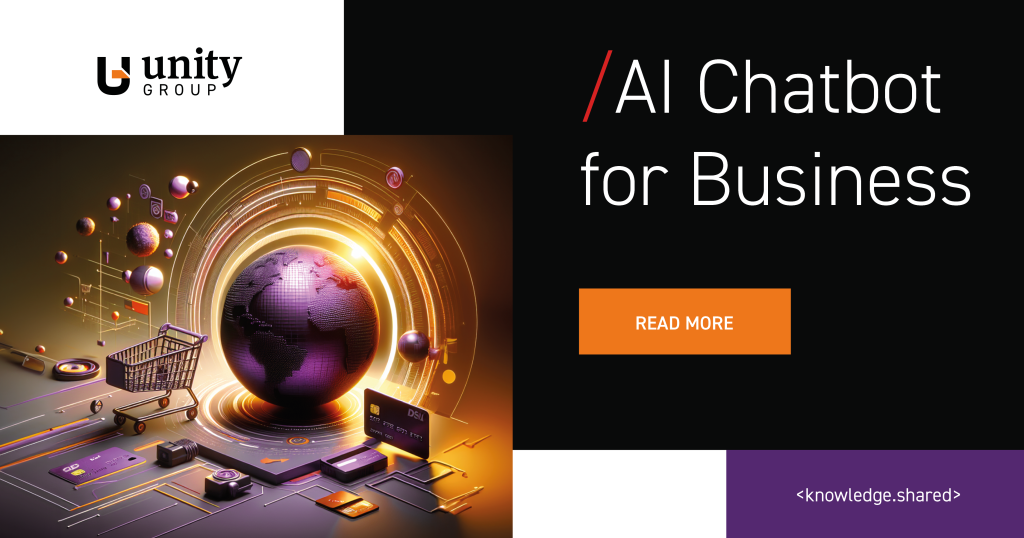AI in Marketing / Increase Team Effectiveness
“In the rapidly changing world of business, marketing optimization has become crucial.” That might sound like the opening line of another AI-generated article, but rest assured, this one’s all human. As enthusiasts of AI, we’ve crafted a human-written guide to the most significant opportunities AI offers in marketing. Whether you’re in retail, healthcare, or industrial marketing, our overview will highlight key areas where AI can enhance your company’s marketing efforts and drive performance.
AI Wins the Hearts of Marketers
When Midjourney and ChatGPT debuted in the latter half of 2022, the marketing world went into a frenzy. LinkedIn overflowed with posts from so-called “experts” on generative AI, with only a handful truly knowledgeable, offering advice on leveraging AI chatbots. Almost overnight, there was a surge in courses, posts, articles, and books on leveraging AI in business and marketing. Some predicted a grim future for creative jobs, while others dismissed chatbot-generated content or boldly claimed that AI would outperform marketers in every task.
Since this initial excitement, the marketing team at Unity Group has diligently monitored trends and experimented with various AI tools to enhance their strategies. Now, as the initial buzz has somewhat settled and marketers have rigorously tested a multitude of AI systems, we aim to evaluate how artificial intelligence truly assists marketers and identify the tasks it can reliably handle across various industries.
Where Marketers Reach Their Limits, AI Steps In
Marketing departments face myriad challenges, some universally acknowledged within every company. While we won’t list every challenge here, including the perennial joke that ‘everyone thinks they know marketing,’ there’s a set of particular obstacles that naturally draw marketers towards AI tools.
Budget Constraints and Rising Expectations
Unfortunately, marketing budgets are often the first to be slashed during a financial pinch, a short-sighted strategy that typically coincides with management’s expectations for unchanged performance levels. Consequently, marketers are increasingly turning to AI tools to optimize their operations and do more with less.
The Imperative of Continuous Learning
Few fields evolve as rapidly as marketing, where professionals must continuously adapt to changing tools, algorithms, and the entire digital marketing landscape. This is evident from the recent overhaul of Google Analytics and the proliferation of AI tools within the industry.
Escalating Costs of Marketing
As the costs of channels like Google Ads and social media advertising climb, marketers scrutinize every expenditure. They are compelled to optimize campaigns and craft superior creatives to stretch their budgets further.
Increasing Audience Apathy
Capturing audience attention is harder than ever in an era flooded with advertisements and content. As our capacity to process information becomes overwhelmed, indifference sets in. Marketers must therefore devise increasingly creative and sustained strategies to engage customers.
AI stands ready to assist marketers in navigating these and other daily challenges, opening new avenues for innovation and efficiency.

Leveraging Artificial Intelligence in Marketing
In the realm of marketing, artificial intelligence (AI) has carved out a significant niche, proving invaluable across various facets of marketing operations. We focus on AI methodologies that we have rigorously tested ourselves or alongside our clients, ensuring they deliver tangible benefits in the everyday tasks of marketers across any industry.
Artificial Intelligence Enhancing Content Marketing
Content marketing — which engages potential customers through compelling and informative content — has particularly benefited from the advent of AI. The generative capabilities of artificial intelligence have revolutionized this area.
The surge of interest in AI-powered tools like ChatGPT for content creation is unmistakable. But does this technology truly live up to the hype? Having actively engaged with generative AI tools since November 2022, I can affirmatively say that, over a year later, these tools have proven their worth. They offer substantial aid in crafting detailed articles and other extensive written materials, streamlining the content creation process while enhancing quality.
ChatGPT and similar tools can significantly bolster your marketing department’s content creation processes. Here’s how they can assist:
- Drafting Initial Copy: Jumpstart your content creation with AI-generated drafts.
- Creating Freelancer Briefs: Efficiently produce detailed briefs for freelancers.
- Inspiration and Idea Generation: Use AI to evaluate your content and suggest improvements or new angles.
- Refining Content: AI can help rewrite titles, headings, and paragraphs to match the desired tone and style. Personalize your ChatGPT by training it with past blog posts and guidelines.
- Enriching Content: Enhance texts with new data, comparisons, and analogies tailored to specific audiences, such as explaining complex technical topics in simple executive summaries.
- Condensing Information: Ideal during research phases, AI can summarize extensive materials into key points, saving precious time.
- Meeting Notes Creation: Post-interview, upload transcripts to ChatGPT to generate concise and formatted notes, ensuring interviewee consent.
Caveats and Limitations in AI-Driven Content Marketing
While AI tools like ChatGPT are transformative, they are not without limitations and should not be seen as replacements for human marketers. The output can sometimes feel formulaic or lack originality—phrases like “Harnessing the power of…” or “In the ever-evolving landscape…” are all too common. Additionally, AI-generated analogies may not always hit the mark, and creativity in headlines can be limited.
It’s crucial to recognize that while AI can streamline many content marketing tasks, the touch of a skilled content creator is indispensable for crafting compelling, original content that resonates with readers.
Another limitation is that content generated by chatbots often requires SEO optimization. Experiments comparing texts produced solely by AI with those written and refined by human editors show that human-touched content generally scores higher in SEO assessments. Beyond quality issues, there’s also the matter of how AI-generated content affects brand perception. “The ability to distinguish whether text was created by AI is becoming crucial,” says Mateusz Cisowski, CTO at marketing agency Harbingers. “Tools for detecting AI-generated content are only about 39.5% effective. This can drop to less than 17.4% with techniques like paraphrasing, varying text complexity, or introducing deliberate errors—which AI can also execute.”
In an intriguing experiment by Surfer, a well-known SEO optimization tool, it was found that AI content detectors sometimes mislabel human-written texts as AI-generated. Currently, it appears that the algorithm of the leading search engines prioritizes content uniqueness, usefulness, and value to the user over its origin. Consequently, both human and AI-generated content must meet high standards of quality and relevance to rank well on platforms like Google. Poor quality or misleading content, regardless of its creator, is unlikely to achieve high rankings.
AI in Social Media
Artificial intelligence is increasingly integral to social media management. A Hootsuite report highlights that 61% of organizations leveraging AI in social media aim to alleviate the workload on their teams.
How AI Supports Social Media Efforts
ChatGPT, for instance, can analyze past posts to generate suggestions for future content, aligning with the desired tone and format. Anna Pustizzi, a social media specialist at Unity Group, notes that while ChatGPT is useful for creative brainstorming and inspiration, its suggested content often lacks specificity and can be hit-or-miss depending on the topic. “The AI-generated copy is typically generic and needs significant refinement,” she explains, adding that the AI sometimes produces irrelevant or inaccurate content, commonly referred to as ‘hallucinations.’
Experimenting with AI-Driven Social Media Strategies
Hootsuite conducted an experiment to assess the efficacy of a social media strategy entirely crafted by ChatGPT compared to one devised by human experts. The results clearly demonstrated that solely relying on AI for content creation did not enhance performance and required as much, if not more, time to polish the posts to satisfactory levels.
A Balanced Approach to AI in Social Media
While the experiment offers valuable insights, a balanced approach is advisable. Utilizing AI to support but not replace social media strategists can enhance efficiency without compromising the human touch that is crucial to genuine engagement. Beyond content creation, AI can assist with campaign parameters, target audience selection, performance analysis, and even graphic generation. It also proves beneficial in customer interaction on social media platforms.
Advancements in Social Media Tools
Current social media scheduling and management systems are incorporating AI to assist with writing posts, generating relevant hashtags and captions, and planning content calendars. Similarly, tools for social listening are evolving with AI to better analyze brand sentiment, detect anomalies, and provide insightful recommendations, enhancing the overall strategy and execution in social media marketing.
Chatbot AI in Marketing
In our work with diverse industry clients, we’ve observed an increasing interest in AI chatbots or AI assistants. These tools are proving invaluable at the confluence of marketing, sales, and customer service. By integrating AI chatbots into social media platforms or websites, businesses can offer instant responses that are both natural and consistent, regardless of the time. Chatbots efficiently handle inquiries by explaining product details, assisting customers in finding optimal products, or suggesting complementary items. They are also adept at promoting special offers and events. Importantly, chatbot managers have the autonomy to update the system with new information as needed, ensuring that the bots are always equipped with the latest data.

The Evolution of AI-Generated Graphics
The subject of graphics generated by artificial intelligence is rich enough to merit its own detailed discussion. While often seen as a source of amusement and inspiration for countless memes, a serious examination reveals significant enhancements that AI tools have brought to the field of graphic design.
For instance, AI features in Adobe programs have revolutionized photo editing, making complex tasks like selecting intricate details (notably those tricky hairy ones) much quicker and simpler. With just a few clicks, users can now isolate an element, insert it into another photo, and even create additional graphic elements or backgrounds based on straightforward instructions.
Similarly, Canva leverages AI to offer novel capabilities within its platform, such as generating visuals from basic sketches and descriptions or sharpening blurry images. While not all functionalities perform flawlessly, many are incredibly valuable, particularly for marketers working with limited budgets for professional graphic design.
Our team is actively experimenting with training custom image generators using existing assets. The objective is to develop a model that assists our graphic designers by producing unique, style-consistent imagery, potentially replacing the need for conventional stock photos. Tools like Midjourney and DALL-E offer exciting possibilities, while platforms like Midlibrary and Hugging Face provide access to a wide range of styles and open-source machine learning models for creating unique cartoons and more.
Copyright issues, however, present ongoing challenges. Using others’ works to train models could lead to copyright infringement. Recent legislative proposals, such as amendments to the Polish Copyright Act under the Digital Single Market Directive, aim to regulate text and data mining. These changes would allow the use of copyrighted works for mining while enabling authors to opt out.
Notably, under current laws, content entirely generated from proprietary data lacks copyright protection, posing complex questions about the origin of content—whether created by humans and protected, or by AI and not. As the economic potential of AI continues to grow, it is crucial to see how these issues will be regulated or if technological advancements may soon provide solutions to these legal dilemmas.
AI in Product Description Creation
For enterprise product marketers, artificial intelligence offers a powerful tool to streamline the management of product information. Manually creating content is labor-intensive and often requires significant resources, especially for companies with extensive product lines. Typically, different departments handle various product groups, leading to potential chaos without a centralized product management system. The need for skilled copywriters or agencies, along with the time spent creating, revising, and updating descriptions, adds further complexity.
Moreover, content produced by different writers across an organization can vary, leading to inconsistencies in style, tone, and quality. Such disparities can negatively impact brand perception and customer experience. Additionally, the manual process of crafting product descriptions can delay the introduction of new products to the market—a critical disadvantage in the fast-paced e-commerce sector where speed can define market success.

AI can significantly aid in standardizing product descriptions, ensuring consistency across the board. Leading Product Information Management (PIM) systems like Pimcore and Ergonode now incorporate AI-enabled features that not only streamline integration with other AI tools but also enhance data modeling capabilities essential for machine learning applications. AI functionalities extend to automatically translating text via tools like DeepL, generating descriptions from product images, suggesting product attributes, or recommending optimal product categorizations.
While these AI capabilities greatly assist marketers in managing product information, it remains essential to review and refine the AI-generated content to correct any inaccuracies and polish the style, ensuring the output aligns with brand standards and market expectations.
Other Applications of AI in Marketing
So far, we have given examples of the application of generative artificial intelligence in marketing. But artificial intelligence in business and marketing is much more than Gen AI!
Recommendation and Personalization Systems
Recommendation systems support sales and marketing by recommending personalized offers to customers. Algorithms analyze a number of factors and information about the user – past purchases, social media information, products purchased by other customers with similar interests, etc. Based on this, the customer receives tailored product recommendations and marketing messages.
It is worth noting that out-of-the-box marketing automation tools typically do not have advanced recommendation systems, so if a company wants to build its competitive advantage through advanced personalization and recommendations, it may be a good idea to use AWS tools, for example.

“Companies have few options for implementing marketing automation on AWS: buy or build. The buy approach leverages solutions from AWS ISV partners who provide pre-built, cloud-native marketing automation platforms optimized for AWS. This can help companies get up and running faster with proven technology. The build approach could leverage AWS services like serverless computing, storage, databases, analytics, AI/ML and GenAI as building blocks to custom develop marketing automation capabilities. This offers more flexibility to tailor the platform to unique needs.
There is also a third option where Amazon Personalize, Amazon Bedrock and Amazon Pinpoint could be a foundation of a marketing automation solution — a compromise between build from foundation elements and buying a ready to use solution. With built-in machine learning capabilities, Amazon Personalize gives companies the power to deliver personalized product recommendations. Retailers can use purchase history, browsing data and product attributes to train Personalize to uncover the most relevant suggestions for each customer. Amazon Pinpoint provides engagement and marketing automation tools to help retailers orchestrate cross-channel campaigns that are timely and relevant. Transactional data can trigger customized emails, push notifications and texts to notify customers of new product arrivals, promotions and recommendations. Companies also see business benefits in applying GenAI technology for customer analytics and personalization. Amazon Bedrock is a fully managed service that offers easy access to a choice of industry-leading large language models and other foundation models from AI21 Labs, Anthropic, Cohere, Meta, Stability AI, and Amazon, along with a broad set of capabilities that customers need to build generative AI applications—simplifying development while supporting privacy and security.”
Enhancing Customer Analysis and Segmentation with AI
Artificial intelligence and machine learning significantly enhance the ability to segment customers and deliver more precisely targeted messages. Unlike traditional methods that primarily rely on geographic and demographic data, AI delves deeper.

Machine learning algorithms excel at identifying subtle, non-obvious patterns, relationships, and trends within vast datasets. This capability enables marketers to uncover new customer trends and customize marketing strategies for specific segments, making campaigns far more effective.
Predictive Analytics in Action
Predictive models are pivotal in identifying customers at risk of churning. Using econometric models, companies can continuously analyze customer behaviors—such as visit frequency, purchase values, and preferences for non-standard products. These insights allow for proactive measures; for instance, if a decrease in customer engagement is detected, the marketing and sales teams can swiftly respond with tailored incentives designed to re-engage those customers, thereby enhancing retention and loyalty. This strategic application of AI not only refines customer targeting but also significantly improves the timing and relevance of marketing interventions.

The Future of AI in Marketing
The landscape of AI in marketing is rapidly evolving, with new tools and solutions emerging monthly. Platforms like Future Tools list hundreds of AI applications in marketing, illustrating the sector’s growth and the overwhelming choices available to marketers.
Despite concerns that marketing content is becoming increasingly homogenized and less original, and fears that the freelance writing profession might diminish as AI capabilities grow, quality content continues to stand out. Well-crafted, useful content retains its value, whether created by humans or assisted by AI.
Concerning the regulation and adoption of AI within large organizations, the Content Marketing Institute’s latest “Enterprise Content Marketing 2024” report indicates that 58% of large companies utilize generative AI, which is 14% lower than the broader group of B2B marketers. Concerns about chatbot errors, corporate policies restricting AI tools, and a lack of understanding about how to effectively leverage Gen AI contribute to this discrepancy.
Moreover, it’s important to recognize that while most top media sites block AI bots, leading to potential inaccuracies in AI-generated information, there is also a risk of bias from sources that do not restrict AI access. However, tool developers often implement safeguards to mitigate these risks.
Like any technology, AI in marketing is a double-edged sword with both advantages and drawbacks. It would be imprudent to entirely dismiss AI’s role in marketing or to depend on it excessively. The best approach is to foster marketing creativity and employ AI where it can truly enhance efficiency, automate mundane tasks, and deliver substantial benefits to businesses.








